Tokyo's hedgehog cafe: Spiky success or thorny welfare worry?
- Published
The hedgehog cafe has been a huge hit with locals
Japan's first hedgehog cafe opened recently, to great media attention. But while their spiky stars are the epitome of "kawaii" cute, is it worth the fuss, and how good is it for the hedgehogs themselves?
Tokyo-based journalist Jordan Allen went to the cafe for the BBC to find out more.
Tell us a little about this cafe
It's called Harry - that's a play on the Japanese word for hedgehog, Harinezumi, literally "needle mouse". It's in Roppongi district.
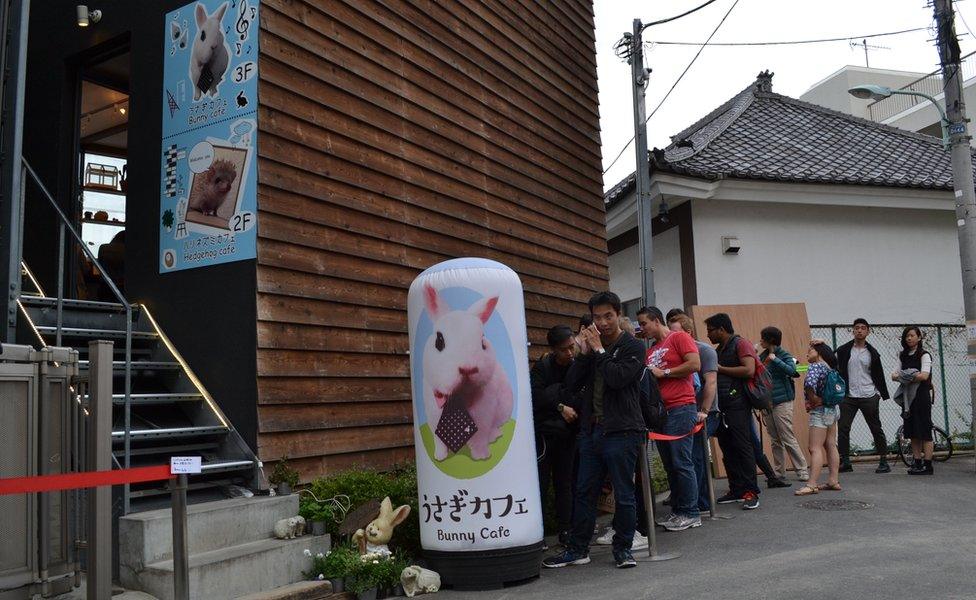
The hedgehogs are just near the existing rabbit cafe
Cafe worker Itohisa Fuka told me they had opened because "we want to let more people know the charms of hedgehogs".
You book a time slot or just have to wait outside until there is space.
When I went, there were about 10-12 people visiting.
So what happens when you're inside?
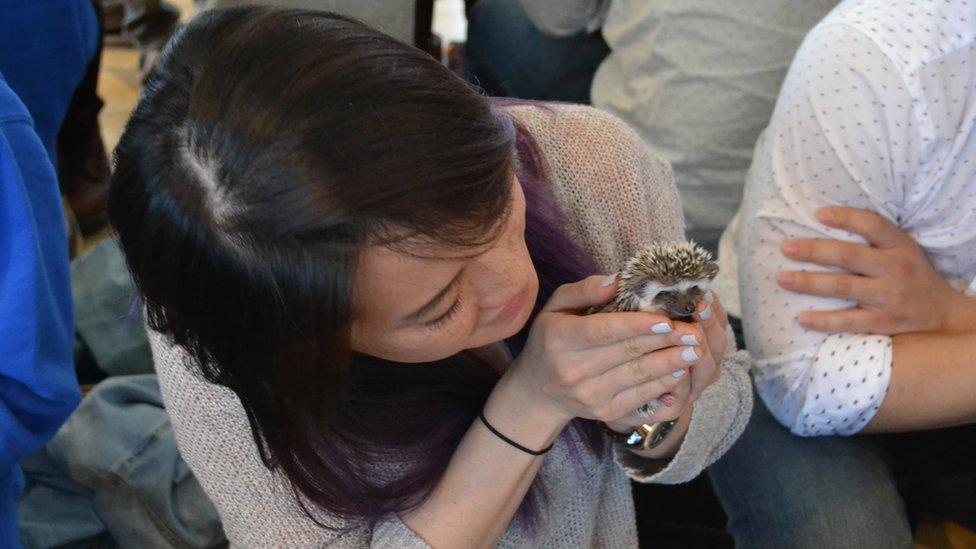
You get in, take your seat, and then either ask for a specific hedgehog or pick one you'd like and the staff give it to you. Once you've had enough, you can swap it with another one.
When you handle it, you're supposed to cup your hands - they said as if you're cupping water - and let it sit there.
Once it settles, you can stroke it and let it move around on your hands.
Incidentally, at Harry you can also hold lizards too. The owners also run a rabbit cafe in the same building, Ms Bunny.
So far so cute, but are they happy hogs?
They do get passed around a bit. But it was all quite gentle.
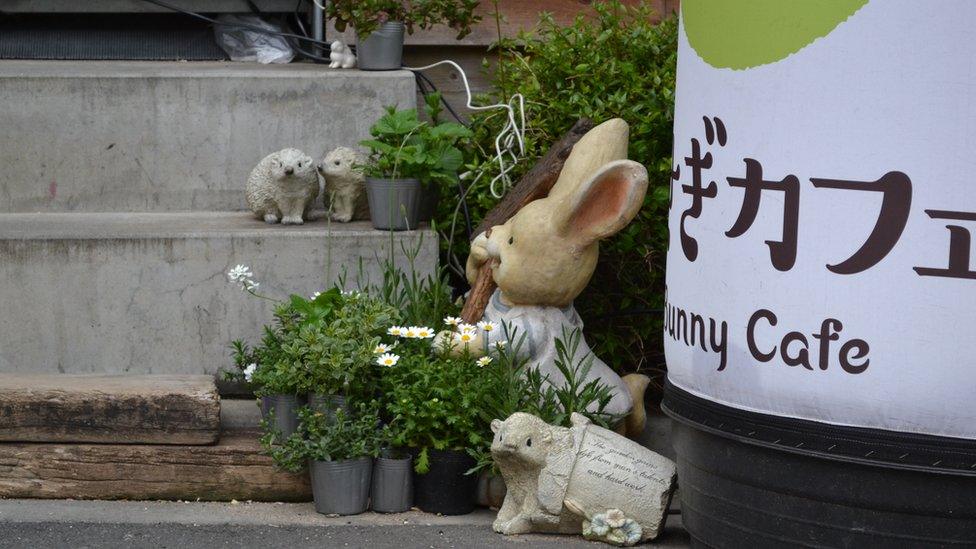
The staff did seem a bit cagey on the animal welfare issue.
Itohisa told me: "We give them a shower, to make them clean, and cut their nails when they get longer."
The hogs eat a pre-mixed exotic animal feed containing chicken meal, wheat, dried insects and vegetable matter.
"Temperature is the most important thing," said Itohisa. "If the temperature is below 20C, they will go into hibernation, and may die if we leave them like that."
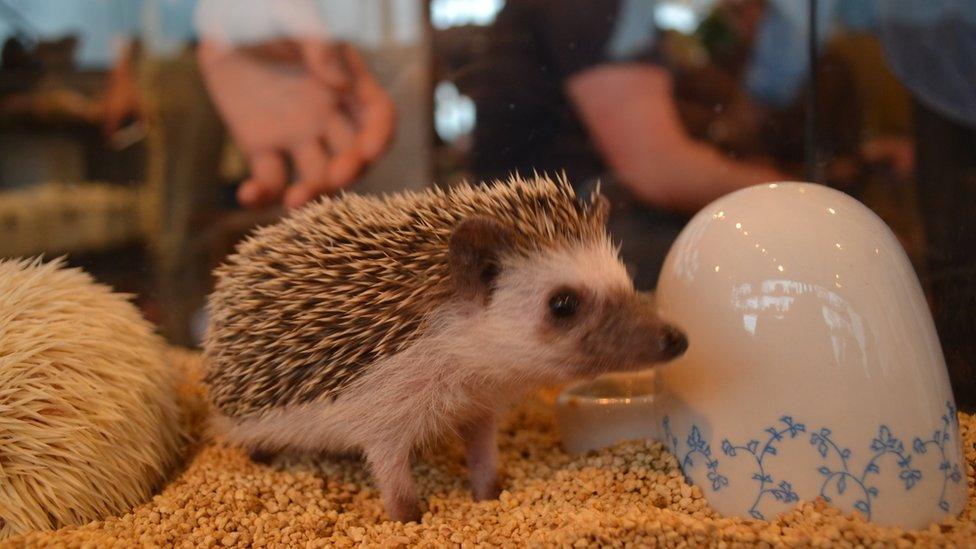
Maho Cavalier of local animal welfare group Animal Walk Tokyo, told me she had not heard any concerns about this business, but did have some worries about animal cafes in general.
"I firstly worry about the fate of animals when these businesses go wrong and close down," she said, referring to the case of a Tokyo cat cafe that was shut down over allegations of animal neglect.
"There may be benefits to humans, such as possible humane education, learning about animals and hedgehogs husbandry, or healing effects.
"There may also be benefits from being provided food, water, and special attention and affection.
"However, I tend to think that the negative factors of this kind of business, especially to animals, outweigh positive aspects."
She also pointed out that hedgehogs were nocturnal but the cafe was open in the afternoon and evening.
And how much is a visit?
On weekdays they charge 1,000 yen ($9.20; £6.40) for 30 minutes, at weekends 1,300 yen.
And if you really enjoy your visit, you can take a hedgehog home.
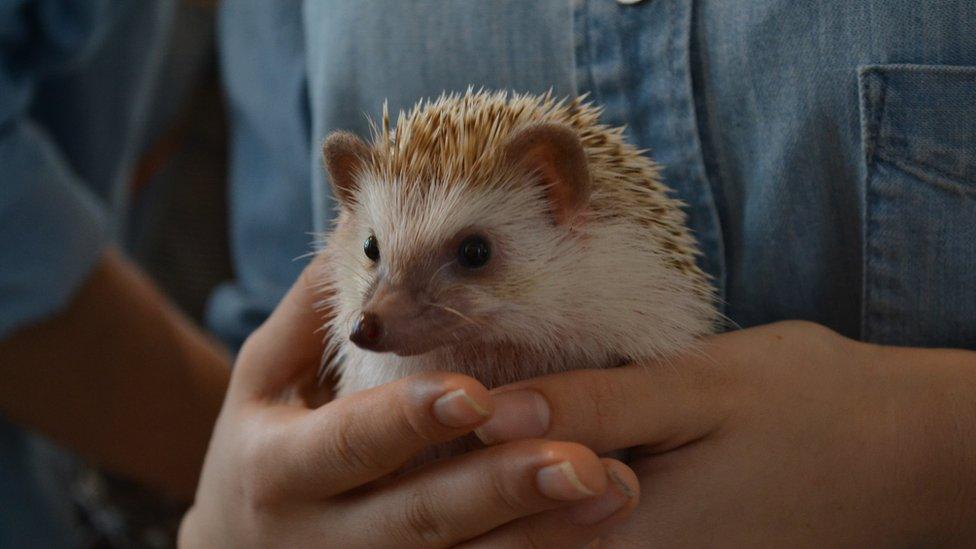
The star attraction of Harry cafe is this hedgehog, Harry
Itohisa said they can sell up to 10 hedgehogs a day, "as they became popular recently because they are easy to keep".
"As spring is coming, many people buy hedgehogs as a sign of new life."
They are bred as pets, rather than taken from the wild. There's a section on their website about breeding them.
I was surprised they could sell so many. There didn't seem to be any restrictions on buying one.
It's the same with cats and dogs in Japan, which you can also buy from non-specialist shops, often sitting in small glass display tanks.
The hedgehog cafe, though, does seem to look after its animal charges well and should you buy one, they explain that you need a cage, food plate, drinking container, running wheel, bed and, of course, plenty of food - all of which they also sell.
- Published13 May 2012
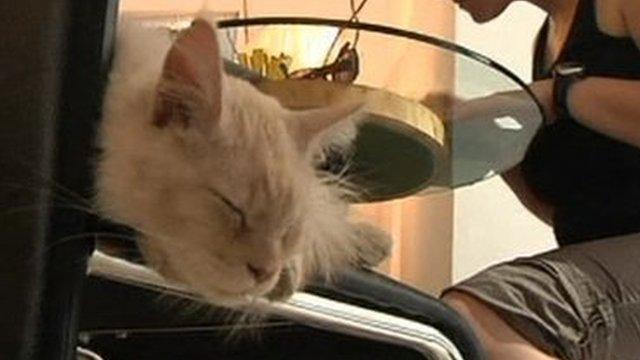
- Published7 April 2016
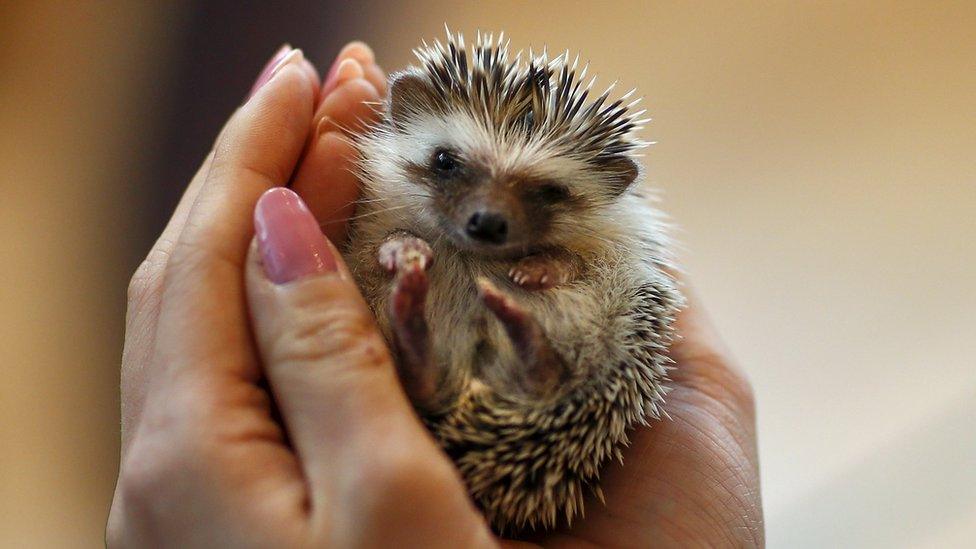
- Published22 February 2016
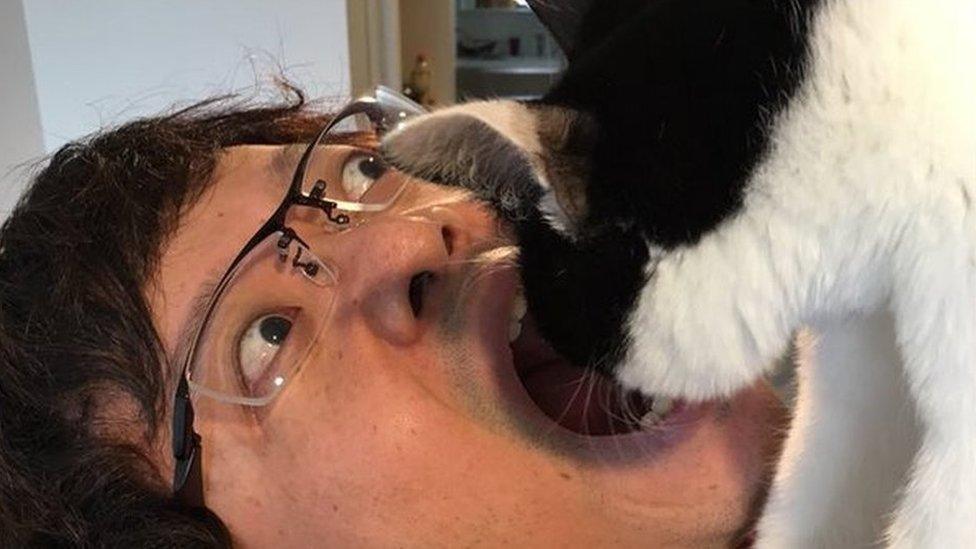
- Published19 February 2015
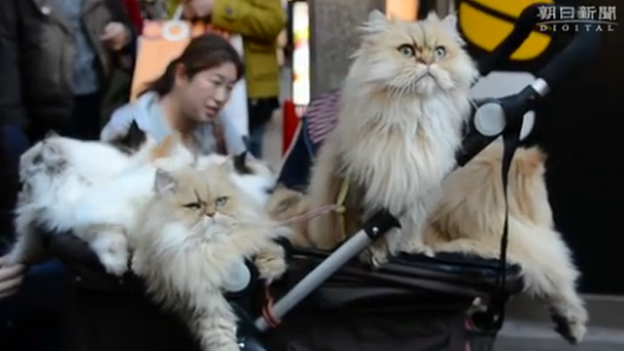
- Published17 March 2015
